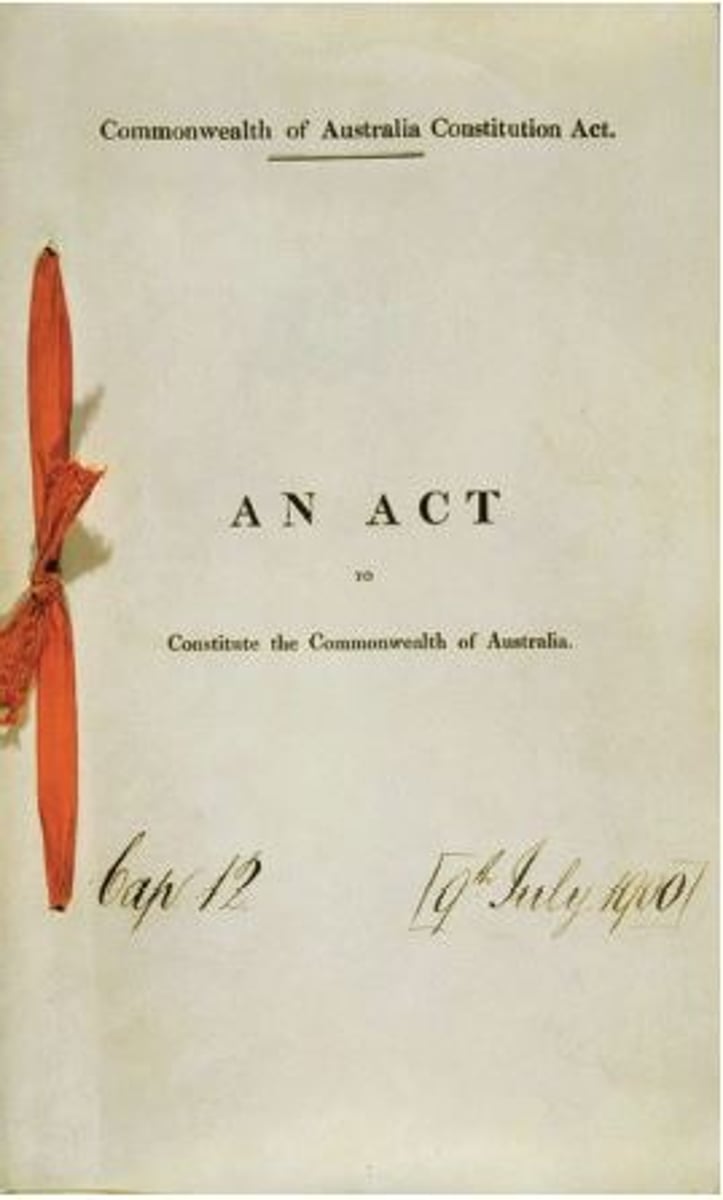Chapter 9 Introduction to Unit 4 – The people, the law and reform
1/19
There's no tags or description
Looks like no tags are added yet.
Name | Mastery | Learn | Test | Matching | Spaced |
|---|
No study sessions yet.
20 Terms
Australian Constitution
a set of rules and principles that guide the way Australia is governed. This is set out in the Commonwealth of Australia Constitution Act

bill
a proposed law that has been presented to parliament to become law. It becomes an Act of Parliament once it has passed through all the formal stages of law- making (including royal assent)
common law
law made by judges through decisions made in cases. Also known as case law or judge-made law (as opposed to statute law)
constitution
a set of rules and principles that guide the way a country of state is run. Some countries have unwritten constitutions; others have formal written constitutions
constitutional monarchy
a system of government in which a monarch is the head of state and a constitution sets out the powers of the parliament
Federation
the union of sovereign states that gave up some of their powers to a central authority to form Australia
government
the ruling authority with power to govern, formed by the political party or parties (known as a coalition) that holds the majority in the lower house in each parliament
High Court
the ultimate court of appeal in Australia and the court with the authority to hear and determine disputes arising under the Australian Constitution
judiciary
the lawful authority (or power) of a court, tribunal or other dispute resolution body to decide legal cases
law reform
the process of constantly updating and changing the law so it remains relevant and effective
legislature
a legal term used to describe the body having the primary power to make law (i.e. parliament)
parliament
a formal assembly of representatives of the people that is elected by the people and gathers to make laws
representative democracy
a political system in which the people elect members of parliament to represent them in government
responsible governent
a legal principle which requires the government to be answerable to elected representatives of the people for its actions and which requires the government to maintain the confidence of the majority of the lower house
royal assent
the formal signing and approval of a bill by the Governor-General (at the Commonwealth level) or the governor (at the state level), after which the bill becomes an Act of Parliament (also known as a statute)
rule of law
the principle that everyone in society is bound by law and must obey the law, and that laws should be fair and clear, so people are willing and able to obey them
separation of powers
a doctrine established by the Australian Constitution that ensures the three powers of our parliamentary system (i.e. executive power, legislative power and judicial power) remain separate
statute law
law made by parliament; also known as Acts of Parliament or legislation (as opposed to common law)
statutory interpretation
the process by which judges give meaning to the words or phrases in an Act of Parliament (i.e. a statute) so it can be applied to resolve the case before them
Westminster system
a parliamentary system of government that developed in Britain and upon which Australia’s parliamentary system is modelled